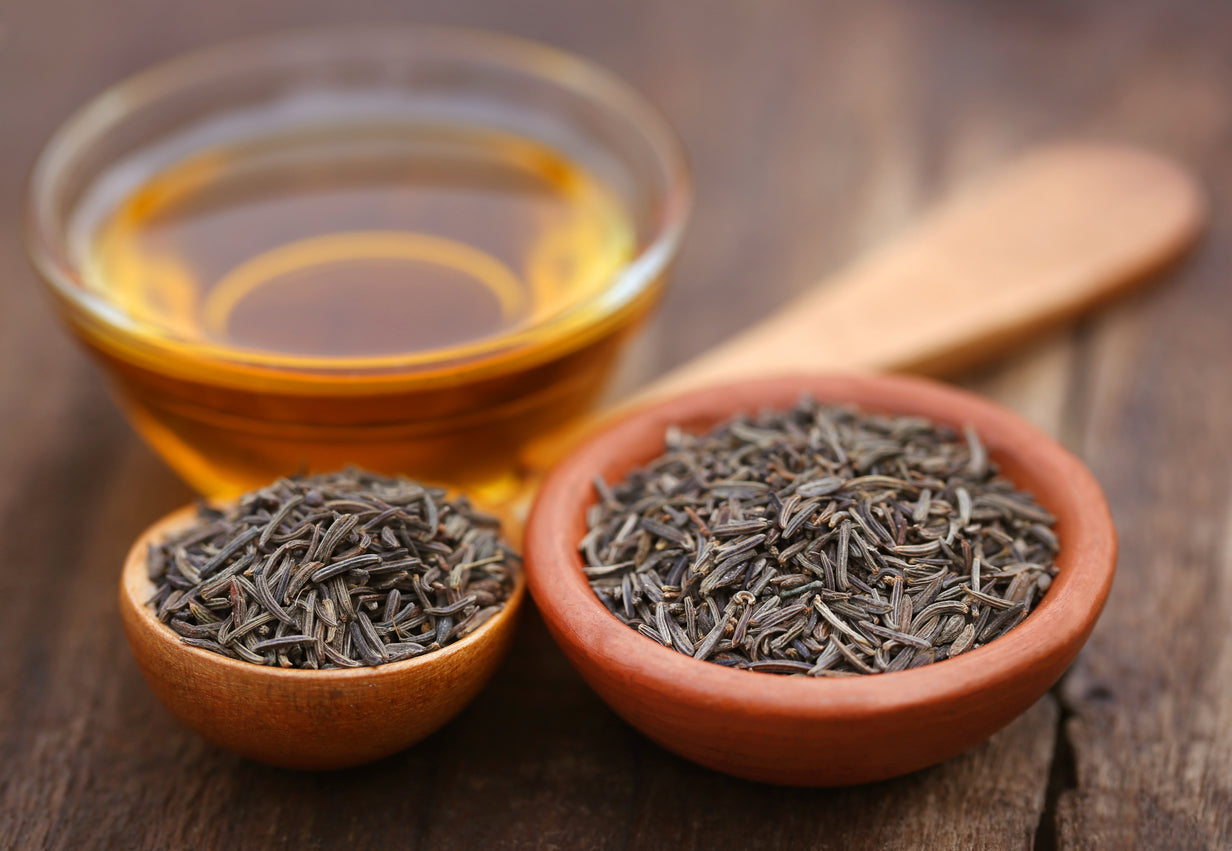Unusual superfood: Caraway seeds and their surprising health benefits

With a refreshing, licorice-like taste, caraway seeds are perhaps best known for imparting their distinctive flavor to rye bread and cheeses. But their value goes far beyond culinary use. Researchers find that potent plant chemicals in these little morsels may offer outsize benefits.
Let's see what caraway seeds can contribute to overall health and nutrition. (You might be amazed!)
Two potent antioxidants give caraway seeds "double-barreled" power to promote health
Caraway seeds are rich in antioxidants, including two monoterpenes, carvone and limonene. Both compounds have been the subject of recent research for their health-sustaining properties. The authors of a 2021 review published in Biomolecules credit carvone with antioxidant, anti-inflammatory, neuroprotective, and anticancer effects. They concluded that carvone also helps to control glucose metabolism and may protect against obesity and other dangers associated with high-fat diets. In addition to its other virtues, carvone acts against pathogenic microbes and fungi, including methicillin-resistant S. aureus, or MRSA, and the Candida fungus.
A second monoterpene, limonene, is emerging as a health "superstar" as well. A review in Molecules reports that limonene has anti-inflammatory and neuroprotective effects that may allow it to protect against Alzheimer's disease, multiple sclerosis, and stroke.
While more study is needed, it seems clear that caraway seeds have the "right stuff" to promote overall health.
Caraway seeds provide surprisingly generous amounts of fiber and minerals
Caraway seeds offer highly concentrated amounts of nutrients. A single tablespoon (a 6.7-gram serving) contains over a gram of plant-based protein, along with a substantial 2.6 grams of fiber and 3.3 grams of carbs. These tiny pods also contain a wealth of essential minerals. Each spoonful of caraway provides 6.1 percent of the adult daily value for iron - vital for transporting oxygen in the blood - and 5.4 percent of magnesium, needed to regulate blood pressure and blood sugar. Caraway seeds also provide the essential trace minerals - manganese and zinc - vital to proper immune defense. Finally, modest but significant amounts of calcium in caraway seeds can help promote bone health. At a modest 22 calories, a nutrition-packed tablespoon of this flavorful spice is a caloric bargain!
Caraway seeds promote healthy digestion, metabolism, and weight
Caraway seeds have long been valued in herbal medicine as a remedy for digestive problems such as indigestion, bloating, and nausea. Scientific research supports this ancient wisdom, with clinical studies revealing that caraway extracts relax the digestive tract's smooth muscle. And caraway extracts have even been shown to inhibit the H. pylori bacteria, which is known to cause gastric ulcers. In addition, these flavorful seeds promote a healthy balance in the gut microbiome - the community of bacteria that supports efficient metabolism, immune defense, and healthy weight. So, it's not surprising that caraway has been associated in studies with significant reductions in appetite, calorie and calorie consumption, weight, and body fat.
Enhance recipes with caraway seeds
Interestingly, while these flavorful little nuggets are referred to as "seeds," they are actually dried pods - making them the fruits of the caraway plant, botanically known as Carum carvi.
You can use caraway seeds whole or crushed in marinades, sauces, and salad dressings or baked into breads and muffins. To impart flavor to soups and stews, enclose seeds in a square of cheesecloth tied at the top and remove the bundle when you're satisfied with the taste. You can also use caraway seeds to elevate hummus, salsa, and dips and to add an unexpected jolt of flavor to sweet fruit pies and jams.
Because of its intense flavor, caraway doesn't always pair well with some spices. However, it's usually a winner when paired with other members of the parsley family - including carrots, celery, and dill.
Many chefs advise toasting caraway seeds before adding them to recipes for maximum appeal. Simply place them in a pan and heat on low for three minutes, stirring frequently. You can also nibble modest amounts of caraway seeds "straight." Integrative healthcare providers typically recommend one-half to one tablespoon of seeds a day, taken in three divided servings.
By the way, you can soothe a troubled tummy with a caraway tea. Pour boiling water over a tablespoon of caraway seeds, cover, and steep for 15 minutes. Allow the liquid to cool, strain, and sip. You can add honey if desired.
Caraway is also available in the form of extracts, capsules, and essential oil, which can be applied to the skin after dilution with a carrier oil. Check with your integrative practitioner before supplementing with caraway.
Small but mighty caraway seeds make a great addition to your healthy diet.
Sources for this article include:






